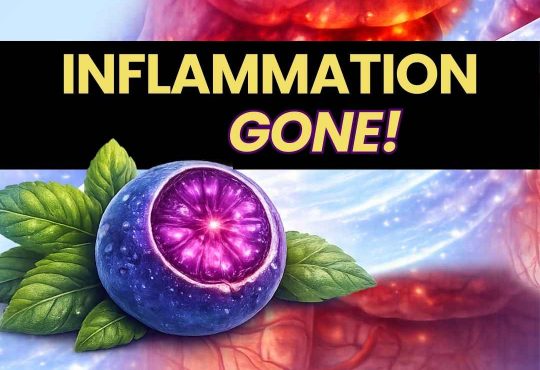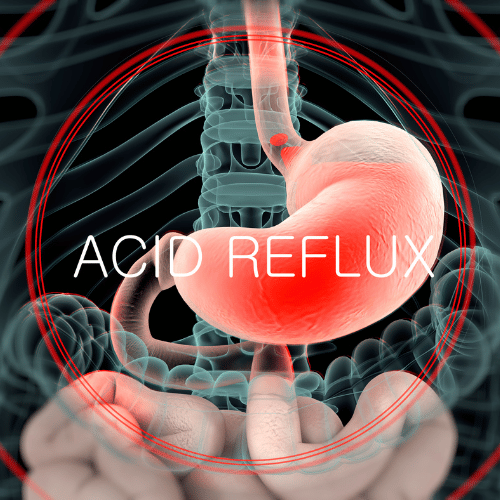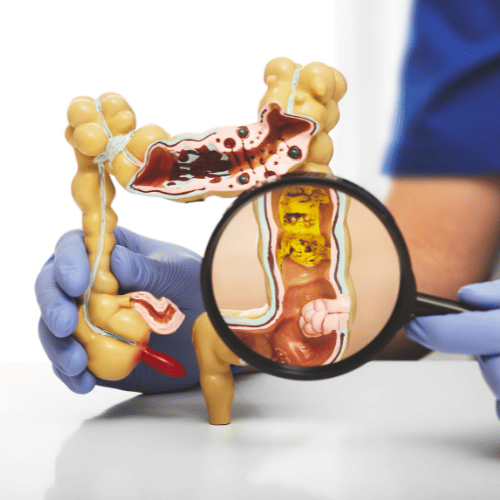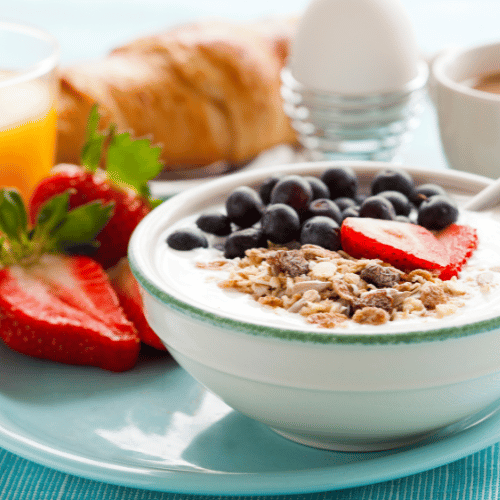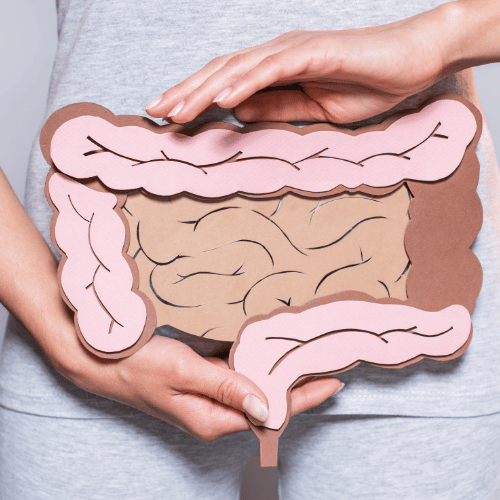
8 Most Harmful Foods For Your Colon
Your colon plays a key role in your digestive health, but certain foods can wreak havoc on this vital organ.
Understanding which foods to limit can significantly enhance your colon health and reduce the risk of unpleasant digestive issues and long-term health problems, including colon cancer.
So, let’s dive into the countdown and uncover the culprits that could be harming your colon.
8. Red Meat
Starting off our list at number eight, we’re looking at red meat.
Now, I know how much a juicy steak or a hearty burger can be the centerpiece of a meal, especially for those of us who love a good barbecue.
But here’s the thing: while red meat is a go-to source of protein, loading up on it might not be doing your colon any favors.
Research has been pointing out for years that there’s a link between high consumption of red meat and an increased risk of colon cancer.
One of the reasons behind this connection could be the saturated fats that are abundant in red meat.
These fats are not just tough on your heart; they could be contributing to the development of cancerous cells in the colon.
A comprehensive study published in the International Journal of Cancer found that individuals who regularly consumed high amounts of red meat had a significantly higher risk of developing colon cancer compared to those who ate less red meat.
This doesn’t mean you have to give up on red meat entirely, but it’s a call to action to consider moderation and explore other sources of protein.
Switching gears to leaner proteins like chicken, fish, or even plant-based proteins such as beans and lentils can be a fantastic way to diversify your diet while being kinder to your colon.
Not only are these alternatives lower in saturated fats, but they also bring a variety of other nutrients to the table without the added risk.
And let’s not forget about plant-based options. Incorporating more plant-based meals into your routine isn’t just good for the planet—it’s great for your health too.
Plants are packed with fiber, which helps keep things moving smoothly and reduces the risk of colon cancer.
7. Processed Meats
Next up, at number seven, we’re talking about everyone’s guilty pleasure at the breakfast table or the BBQ grill—processed meats.
Yes, I’m looking at bacon, sausages, and hot dogs.
They’re delicious, convenient, and, let’s face it, a staple in many diets.
But here’s the catch: beyond their high saturated fat content, these foods are loaded with chemicals and preservatives that aren’t doing your colon any favors.
The World Health Organization made headlines a few years back when it placed processed meats in the same carcinogenic category as smoking and asbestos, especially in terms of their link to colon cancer.
This classification was based on a thorough review of the evidence, suggesting that even small amounts of processed meats can increase cancer risk.
What makes processed meats particularly concerning is not just the fats but also the presence of certain chemicals used in their preservation.
For example, nitrates and nitrites, which are commonly used to keep these meats looking fresh and prevent spoilage, can form nitrosamines in the body, compounds known to be carcinogenic.
Research published in the Lancet Oncology provided robust evidence supporting the link between processed meat consumption and an increased risk of colon cancer.
The findings suggest that for every 50 grams of processed meat consumed daily (that’s roughly the size of a hot dog), the risk of colon cancer increases by 18%.
So, what’s the takeaway? While it might be hard to say goodbye to bacon breakfasts or grilled sausages at the family picnic, considering the health implications, it might be wise to treat these foods as occasional indulgences rather than diet staples.
Exploring alternatives like turkey bacon or plant-based sausages can offer the flavors you love without the added health risks.
Plus, getting creative with your meals not only benefits your colon but can also open up a whole new world of culinary delights.
In short, cutting down on processed meats is a proactive step toward reducing your cancer risk and taking care of your colon health.
And with so many delicious and healthier alternatives out there, it’s an adjustment that can be both tasty and beneficial.
6. Fried Foods
Ah, fried foods—the ultimate comfort food for many of us. Whether it’s french fries, fried chicken, or crispy onion rings, there’s no denying their appeal.
But as we hit number six on our list, it’s time to look a bit closer at why these indulgences might need to be enjoyed more sparingly.
The truth is, while fried foods might satisfy our taste buds, they come loaded with unhealthy fats that can do a number on our colon health.
The main issue with fried foods lies in the type of fats they’re cooked in.
Often, these foods are prepared in oils that are rich in saturated and trans fats.
When consumed in excess, these fats can lead to inflammation—a condition that’s not only harmful to your overall health but also a known risk factor for developing colon cancer over time.
But here’s where it gets really interesting: research has started to paint a clearer picture of this connection.
A study highlighted in the Journal of the National Cancer Institute found a link between high consumption of fried foods and an increased risk of colon cancer.
It appears that the inflammation caused by these fats can create an environment in the colon that’s more conducive to the development of cancerous cells.
Now, before you swear off your favorite fried treats entirely, let’s talk alternatives.
Switching to baking or grilling your foods instead of frying can significantly reduce the unhealthy fat content while still delivering delicious flavors.
For instance, oven-baked sweet potato fries can be a fantastic substitute for their deep-fried counterpart.
Similarly, grilling chicken instead of frying it can offer a tasty yet healthier option that’s gentler on your colon.
Making these small adjustments to how you prepare your meals can have a big impact on your colon health.
Not only do these cooking methods reduce the amount of unhealthy fats in your diet, but they also preserve more of the natural nutrients in your food, providing your body with the fuel it needs to function at its best.
5. Alcohol
Now, at the halfway point of our list, we find ourselves looking at alcohol. It’s a bit of a double-edged sword.
On one side, you’ve heard about the potential heart benefits of a glass of red wine.
Yet, when it comes to your colon, the story takes a different turn, especially with excessive drinking.
Here’s the lowdown: while enjoying a drink now and then is part of many cultures and lifestyles, going overboard can do more harm than good to your colon.
Alcohol has a way of irritating the lining of your colon, kind of like how spicy food might upset your stomach.
But it doesn’t stop there. Heavy and consistent alcohol consumption ramps up your risk for colon cancer.
Research, including studies highlighted by the American Cancer Society, underscores a clear link between substantial alcohol intake and an increased risk of colon cancer.
The more you drink, the higher the risk.
But how does alcohol exactly contribute to this risk?
It seems to be a combination of factors, including the production of acetaldehyde, a toxic chemical that’s formed as your body breaks down alcohol.
Acetaldehyde can damage the DNA in your colon cells, setting the stage for cancer to develop.
Plus, excessive alcohol can also affect the body’s ability to absorb essential nutrients, further compromising colon health.
So, what’s the takeaway here? Moderation is key.
If you enjoy alcoholic beverages, keeping it moderate can help you maintain a healthy colon.
For men, this means no more than two drinks per day, and for women, no more than one.
And remember, cutting back on alcohol doesn’t mean cutting back on social or relaxation time.
There are plenty of non-alcoholic options that can be just as enjoyable without the added risk to your colon.
4. Refined Grains
Moving down to number four, let’s talk about something that’s probably a staple in many of our diets—refined grains.
Yes, I’m referring to the white bread you might use for your sandwich, the pasta in your favorite Italian dish, or those pastries that are hard to resist in the morning.
They’re convenient and, let’s be honest, pretty tasty. But when it comes to your colon health, they’re not doing you any favors.
Here’s the scoop: refined grains have been processed to the point where most of the natural fiber is lost.
Fiber is a big deal for your digestive system. It helps keep things moving smoothly, reducing the risk of constipation.
But when you opt for foods made from refined grains, you’re missing out on this crucial nutrient.
And chronic constipation? It’s not just uncomfortable; it can lead to more serious issues like colon polyps, which are growths on the lining of your colon that can, over time, turn into cancer.
But there’s more. Whole grains, unlike their refined counterparts, come packed with fiber, vitamins, and minerals.
A study published in the American Journal of Clinical Nutrition highlighted that a diet rich in whole grains is associated with a lower risk of colon cancer.
This is because whole grains not only provide the fiber needed to help prevent constipation and reduce the formation of polyps but also contain other beneficial nutrients that support overall colon health.
So, what should you do? The answer is pretty straightforward: swap out those refined grains for whole grains whenever you can.
Instead of white bread, try whole grain or whole wheat bread.
Love pasta? Look for whole grain options or spiralized your vegetables.
And as for pastries, well, treating them as occasional indulgences rather than daily staples can be a good start.
Incorporating whole grains into your diet is a simple change that can have a big impact on your colon health.
Not only can it help keep your digestive system running smoothly, but it can also play a part in reducing your risk of colon cancer.
And the best part? Whole grains can be just as delicious.
With a bit of exploration, you might find some new favorites that are both tasty and good for your colon.
3. High-Sugar Foods
As we move closer to the top of our list, coming in at number three are those sugary treats we often find hard to resist.
We’re talking about sugary snacks and beverages that, despite their appealing taste, might be doing more harm than good to our gut health.
It’s not just about the immediate spike in energy followed by the inevitable crash; the real issue runs deeper, affecting the very core of our digestive system—the gut bacteria.
Our gut is home to a complex community of bacteria, playing a crucial role in digestion, immune function, and even our mood.
When we overload our diet with high amounts of sugar, it can disrupt this delicate balance, favoring the growth of harmful bacteria over beneficial ones.
This imbalance, known as dysbiosis, can lead to inflammation, a condition that’s not only uncomfortable but also linked to an increased risk of colon cancer.
Research, including studies published in respected journals like the World Journal of Gastroenterology, has shown that diets high in sugar can contribute to the development of inflammatory bowel diseases and, potentially, colon cancer.
The inflammation caused by a sugar-rich diet creates an environment in the colon that can promote the growth of cancerous cells.
But here’s the good news: you can take steps to protect your colon by simply cutting back on sugar.
Now, I know what you might be thinking—easier said than done, right? The key here is to start small.
Begin by reducing the amount of sugary snacks and drinks in your diet and replacing them with healthier options.
For instance, natural sweeteners like fruit not only offer the sweetness you’re craving but also come packed with fiber and nutrients that support your gut health.
Opting for fruits as a sweet treat or using them to sweeten your meals naturally can help maintain the balance of your gut bacteria and reduce inflammation.
Plus, fruits like berries, apples, and pears are delicious and can easily satisfy that sweet tooth without the negative impacts of processed sugars.
So, before you reach for that soda or candy bar, consider a piece of fruit or a fruit-infused water instead.
Making these small changes in your diet can have a significant impact on your colon health, helping to reduce inflammation and lower your risk of cancer.
2. Artificial Sweeteners
Nearing the top of our list at number two might come as a bit of a shocker—it’s artificial sweeteners.
Yes, those zero-calorie options many turn to as a way to reduce sugar intake without sacrificing sweetness.
While they might seem like the perfect solution to enjoying sweets guilt-free, they come with their own set of issues, particularly when it comes to our gut health.
Artificial sweeteners, found in everything from diet sodas to sugar-free desserts, can mess with the delicate balance of bacteria in our gut.
Similar to high-sugar foods, they can lead to dysbiosis, an imbalance that favors harmful bacteria over the beneficial ones.
This imbalance can trigger inflammation and has been linked to a condition known as glucose intolerance, a precursor to more serious health issues like diabetes.
Research, including findings published in the Nature Journal, has shown that artificial sweeteners can alter the gut microbiota in ways that affect our body’s ability to process glucose.
This revelation is particularly concerning because it challenges the notion that artificial sweeteners are a healthy alternative to sugar, especially for those watching their blood sugar levels.
But don’t worry, there’s a silver lining here.
For those of us looking to sweeten our life without the adverse effects on our colon health, nature provides some fantastic alternatives.
Natural sweeteners like stevia, derived from the leaves of the stevia plant, offer a sweet taste without the calories or negative impact on gut bacteria.
Honey, while more calorie-dense, comes packed with antioxidants and can support the growth of beneficial gut bacteria when consumed in moderation.
Incorporating these natural sweeteners into your diet can be a simple switch with significant benefits.
1. Ultra-Processed Foods
And here we are, at the pinnacle of our countdown, and it’s a big one—ultra-processed foods.
These are the foods that are so far removed from their natural state that they barely resemble the original ingredients.
We’re talking about those packaged snacks, ready-to-eat meals, and fast-food items that are staples in the modern diet.
They’re convenient, sure, but they come with a hefty price for your health, particularly when it comes to your colon.
Ultra-processed foods are often packed with added sugars, unhealthy fats, and a cocktail of preservatives and artificial ingredients.
Their low nutritional value means you’re not giving your body the fiber, vitamins, and minerals it needs to function properly.
But it’s not just about what these foods lack; it’s also about what they contain.
The additives and chemicals found in ultra-processed foods can contribute to inflammation in the body, a key risk factor for developing colon cancer.
Research has been sounding the alarm on ultra-processed foods for a while now.
A study published in the BMJ found a significant link between the consumption of ultra-processed foods and an increased risk of cancer, including colon cancer.
The findings suggest that the more ultra-processed foods we eat, the higher our risk of developing serious health issues.
So, what’s the solution? Turning back to whole, unprocessed foods is the key.
Incorporating more fruits, vegetables, whole grains, and lean proteins into your diet can drastically improve your colon health.
These foods are rich in the nutrients your body needs to maintain a healthy digestive system, reduce inflammation, and lower your risk of cancer.
Making the switch to a whole-food-based diet doesn’t have to be daunting.
Start small by preparing more meals at home using fresh ingredients.
Snack on whole fruits and nuts instead of packaged goods.
And when you do shop for packaged foods, read the labels carefully—opt for items with fewer ingredients and ones that you recognize as real food.
By prioritizing whole, unprocessed foods in your diet, you’re not just protecting your colon; you’re investing in your overall health and well-being.
It’s a change that can have profound effects on how you feel day-to-day and on your long-term health prospects.
And that wraps up our countdown of the 8 Most Harmful Foods For Your Colon.
Remember, taking care of your colon is crucial for maintaining your health and preventing disease.
By being mindful of what you eat and making healthier choices, you can support your colon health and lead a healthier, happier life.
Every bit helps us keep creating content that makes a difference.
Do you have any tips for avoiding ultra-processed foods or favorite whole-food recipes? Share them in the comments below.
We love hearing from you, and your suggestions could help others on their journey to better health.
Here’s to taking care of your colon and your health!
